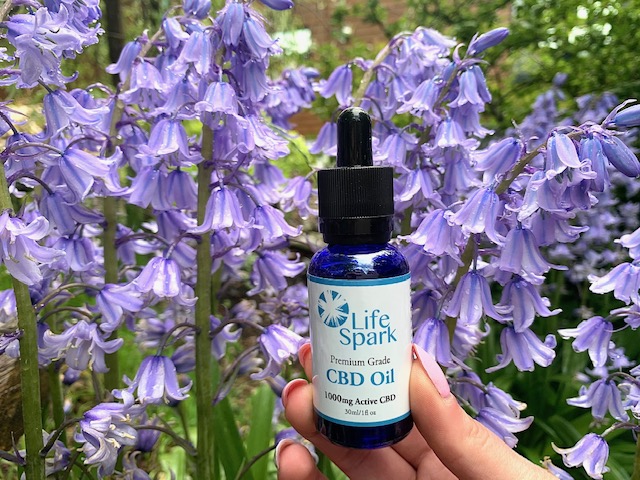Pain is an unfortunate and common aspect of life that can manifest in various forms, from acute discomfort to chronic conditions. While conventional pain medications can be effective, some individuals seek alternative, natural remedies to manage pain without the potential side effects associated with pharmaceuticals. One such natural option gaining popularity is hemp oil. Extracted from the seeds and stalks of the hemp plant, hemp oil is garnering attention for its potential analgesic properties and numerous health benefits. In this blog post, we will delve into the science behind hemp oil’s pain-relieving effects, explore its different forms, understand its potential applications, and consider its safety and legal status.
Understanding Hemp Oil
Hemp oil, also known as hemp seed oil, is derived from the seeds of the hemp Sativa plant. Unlike its controversial cousin, hemp does not contain significant levels of tetrahydrocannabinol (THC), the psychoactive compound responsible for the “high” associated with hemp use. Instead, hemp oil is rich in cannabidiol (CBD), a non-psychoactive component that interacts with the body’s endocannabinoid system (ECS).
The Endocannabinoid System and Pain Regulation
The ECS is a complex biological system present in all mammals, including humans. It plays a crucial role in regulating various physiological processes, including pain perception, immune response, and mood. The ECS consists of receptors, endocannabinoids (naturally occurring compounds within the body), and enzymes responsible for their synthesis and degradation.
When the body experiences pain or inflammation, the ECS is activated to restore balance and alleviate discomfort. CBD from hemp oil interacts with the ECS by binding to CB1 and CB2 receptors, modulating pain signals and reducing inflammation.
Forms of Hemp Oil
Hemp oil is available in various forms, each with unique characteristics and uses:
- CBD Oil: The most popular form of hemp oil is CBD oil, which is typically extracted from the whole hemp plant using a CO2 extraction method. CBD oil is available in different concentrations, allowing users to tailor their dosage based on individual needs.
- Hemp Seed Oil: This type of hemp oil is derived solely from hemp seeds, containing little to no CBD. Hemp seed oil is more commonly used as a nutritional supplement, rich in essential fatty acids and nutrients.
- Topical Hemp Products: These include creams, lotions, and balms infused with CBD, designed to be applied directly to the skin for localized pain relief.
- Edibles: CBD-infused edibles like gummies, chocolates, and capsules provide a discreet and tasty way to consume hemp oil for pain relief.

Using Hemp Oil for Pain Relief
- Chronic Pain Management: Studies suggest that hemp oil may be effective in managing chronic pain conditions like arthritis, fibromyalgia, and multiple sclerosis. Some individuals report reduced pain and improved mobility after regular CBD use.
- Post-Workout Recovery: Athletes and fitness enthusiasts often use hemp oil to aid in post-workout recovery, as it may help reduce exercise-induced inflammation and muscle soreness.
- Neuropathic Pain: Neuropathy is a type of chronic pain resulting from nerve damage. Preliminary research indicates that CBD may offer relief from neuropathic pain by interacting with neurotransmitter activity.
- Migraine Relief: Some individuals have found relief from migraines and headaches by using hemp oil. Its anti-inflammatory properties might help alleviate the severity and frequency of these painful episodes.
Safety and Legal Considerations
Hemp-derived CBD products containing less than 0.3% THC are legal in many countries, but regulations can vary. However, it’s essential to exercise caution and verify the legality of hemp oil in your specific region before use.
While hemp oil is generally considered safe, side effects may occur in some individuals, including dry mouth, fatigue, and changes in appetite. It’s crucial to consult with a healthcare professional before incorporating hemp oil into your pain management routine, especially if you are taking other medications or have underlying health conditions. Please visit their solutions page to find out more tips and ideas about using hemp oil for pain.
Conclusion
As interest in natural pain relief grows, hemp oil is emerging as a promising option with its potential analgesic and anti-inflammatory properties. Scientific research into hemp oil and its efficacy for pain relief is ongoing, but early findings are encouraging. For individuals seeking a natural alternative to manage pain, hemp oil might offer a viable solution. Always remember to conduct thorough research, seek advice from healthcare professionals, and choose high-quality products from reputable manufacturers for the best possible results in using hemp oil for pain relief.





